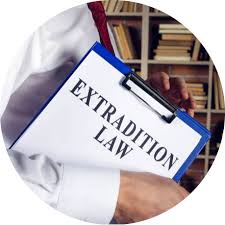The Impact of Strict Alcohol Regulations by State 368572657

The Impact of Strict Alcohol Regulations by State
Throughout the United States, alcohol regulations vary significantly from state to state. These laws shape the way alcohol is sold, distributed, and consumed, affecting everything from the hours that liquor stores can remain open to the types of beverages that can be offered. When discussing strict alcohol regulations by state, it’s crucial to understand the historical context, the rationale behind these laws, and their broader social implications.
A Brief Historical Overview
The landscape of alcohol regulation in the U.S. has been shaped profoundly by the Prohibition era (1920-1933). This period marked a nationwide constitutional ban on the production, importation, transportation, and sale of alcoholic beverages. Although Prohibition was repealed in 1933, it left a legacy of complex regulatory frameworks which vary for each state, reflecting local attitudes towards alcohol consumption.
Diverse Regulatory Frameworks
Each state has developed its own set of regulations pertaining to the sale and consumption of alcohol. For instance, some states like Utah and Pennsylvania have stringent control over alcohol sales, utilizing state-run stores to manage distribution. In contrast, states such as California have relatively relaxed laws, allowing for a thriving market for craft breweries and wineries.
State-specific Regulations
To illustrate the diversity in regulations, let’s examine a few states with particularly strict alcohol laws:
- Utah: Known for some of the strictest alcohol regulations, Utah limits the alcohol content of beer sold in grocery stores to 5% by weight (approximately 4% by volume). The state also requires a special license to sell alcoholic beverages, and bars must operate under specific guidelines regarding the sale of alcoholic drinks.
- Pennsylvania: Here, the state government essentially controls all aspects of alcohol sales through a series of state-run liquor stores. This control extends to the regulation of prices and quantities sold, making it one of the most restrictive states in the country.
- Alabama: Alabama imposes strict penalties for public intoxication and has regulations limiting the sale of alcohol on Sundays. Additionally, many dry counties exist where the sale of alcohol is prohibited altogether.
- Georgia: While Georgia has made strides to liberalize its alcohol laws in recent years, strict regulations still apply. The state prohibits the sale of alcohol before 12:30 PM on Sundays, and local jurisdictions can uphold more restrictive laws, resulting in a patchwork of regulations.
Public Health and Safety Considerations

Proponents of strict alcohol regulations often argue that they are essential for public health and safety. By regulating the availability and sale of alcohol, states aim to reduce consumption rates, minimize alcohol-related harms, and promote responsible drinking. These regulations may include mandatory training for servers, limitations on advertising, and specific hours during which alcohol can be sold.
The Impact on Businesses
However, strict regulations can also pose challenges for businesses in the alcohol industry. Complicated licensing processes and stringent distribution laws may create barriers to entry for new breweries, wineries, and bars. This not only stymies innovation but can also lead to increased prices for consumers, as businesses pass on the costs of compliance with the regulations to their customers.
The Evolution of Alcohol Laws
As social attitudes toward alcohol consumption shift, many states are re-evaluating their alcohol regulations. The movement towards legalizing cannabis in various states has also sparked discussions about the future of alcohol regulation. Some argue for more liberalization of laws to create competitive markets akin to those for craft cannabis products, while others advocate for maintaining strict controls to ensure public health and safety.
Grassroots Movements and Reform Efforts
Grassroots movements have emerged in various states advocating for reforming outdated alcohol laws. These movements often cite success in states that have liberalized liberalization laws, pointing to increased revenues from taxes on alcohol sales, as well as a decrease in illegal alcohol trafficking. Industry lobbying also plays a significant role in driving changes in regulations, with organizations advocating for more favorable conditions for alcohol producers and retailers.
Future Trends in Alcohol Regulation
The future of alcohol regulation in the United States may depend heavily on generational changes in attitudes towards drinking. With younger generations showing a trend towards health consciousness and moderation, we may see a shift in regulatory approaches. States might look to implement a more flexible regulatory framework that balances public health concerns with economic opportunities for businesses in the alcohol industry.
Conclusion
In conclusion, strict alcohol regulations vary widely across the United States, influenced by historical precedents, cultural attitudes, and public health considerations. While such regulations aim to promote responsible drinking and public safety, they can also create challenges for consumers and businesses alike. As society continues to evolve, so too will the conversation surrounding alcohol laws, with potential reforms offering a path towards a more balanced approach to alcohol regulation that respects both individual freedoms and community health.

